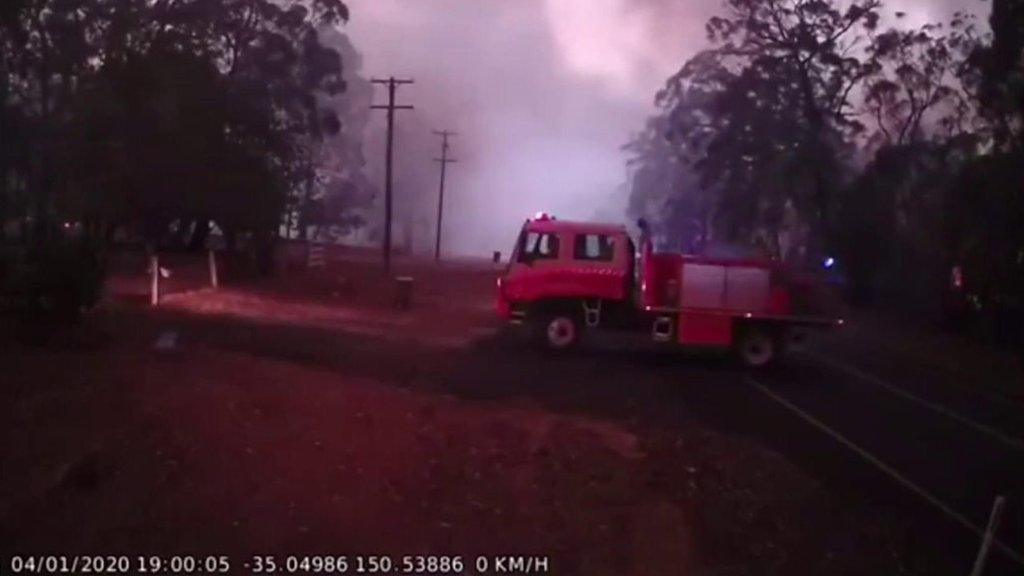Australia fires: British firefighters to assist with clean-up
- Published
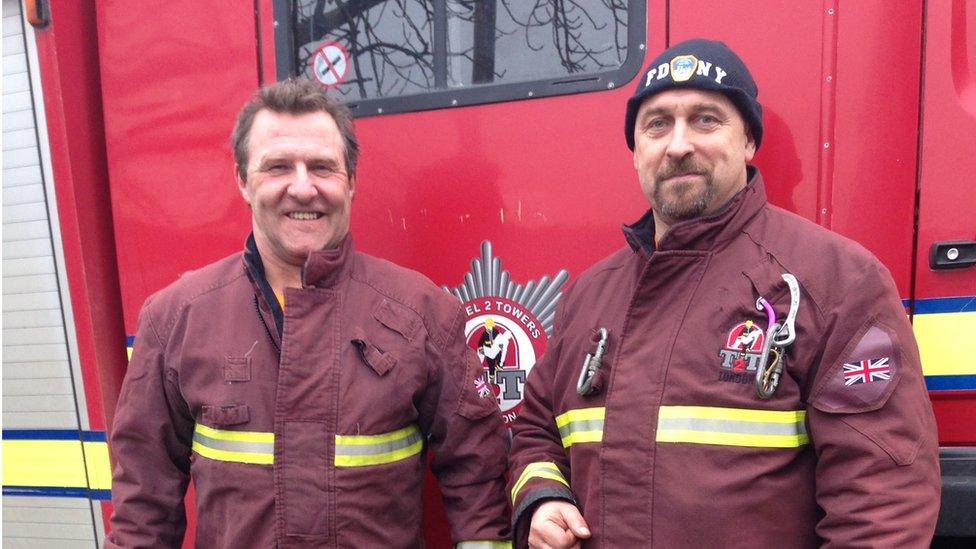
Former London firefighter Steve James (right) said the group would give the Australian firefighters a "second wind"
A group of about 300 serving and retired firefighters are heading to Australia to help rebuild communities hit by bushfires.
The team, including former chief fire officers, will work with the charity BlazeAid to rebuild structures and fences destroyed by the fires.
Organiser Steve James said the group would help wherever they could.
"We need to do some good for them, it would give them a second wind knowing we've come so far," he said.
Former London firefighter Mr James runs Tunnel to Towers UK (T2T), a charity event inspired by an American firefighter who died in the 9/11 attacks in New York in 2001.
He made the requests for help through T2T and eventually saw 1,250 firefighters volunteer to help from across Britain.
Australian firefighters have used dancing videos on TikTok to raise morale
An airline has offered free return seats to Australia for all of the volunteers.
The Australian bushfires have been especially intense this year as record-breaking temperatures and months of severe drought have fuelled a series of massive fires across the country.
More than 11 million hectares (27.2 million acres) of land burned - the entire land mass of England measures 13 million hectares (32.2 million acres).
At least 33 people have been killed in the fires and four of those were local firefighters.
'Well-meaning professionals'
There have been no official requests for outside help from the Australian government but the Australian High Commission in the UK has helped T2T arrange visas.
BlazeAid issued a formal invitation for urgent assistance with volunteers in New South Wales.
Firefighters from countries including the United States, New Zealand and Canada have already headed to Australia to help.
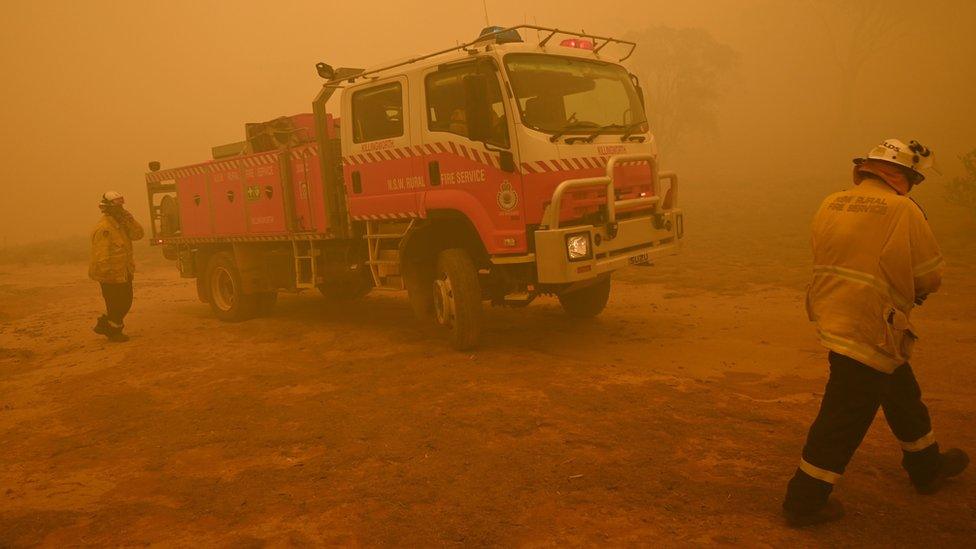
Four Australian firefighters are among those to have died in the bushfires
"The Australian firefighters will probably think we poms would go there and just drink tea, but it's a great way to break barriers down," Mr James said.
"As soon as the fires started I wrote offering our help. We aren't going out to fight bushfires and we know we're at the bottom of the pecking order.
"You don't just turn up at someone's party and take over, do you?
"We're trained to go in areas with scorched earth, and taught things like animal rescue.
"There's thousands of farm animals running loose and nobody can look after them because of the fire.
"We're not well-meaning amateurs, we're well-meaning professionals."
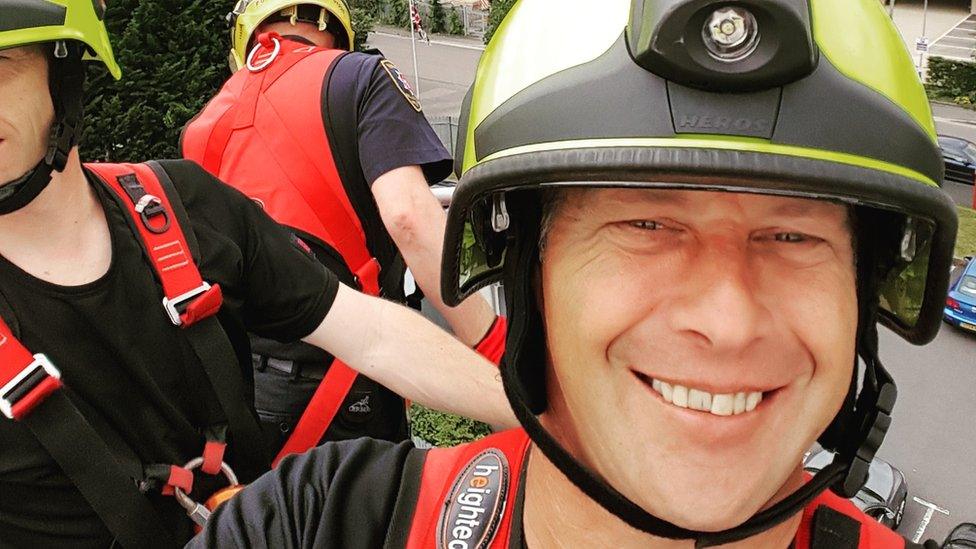
"It doesn't surprise me that so many firefighters have volunteered," said Steve Watters
"Without a doubt, firefighters are a community in themselves," said Salisbury-based Steve Watters, who was given leave by his bosses in Winchester to spend a month in Australia.
"Most of my family live in Western Australia and I saw the devastation out there, I just wanted to help communities get back on their feet.
"It doesn't surprise me so many of us have come forward, that's the mindset of firefighters."
Mr Watters, who has worked in disaster zones in Haiti and New Zealand, said fire chiefs had offered spare kit for him to make use of there.
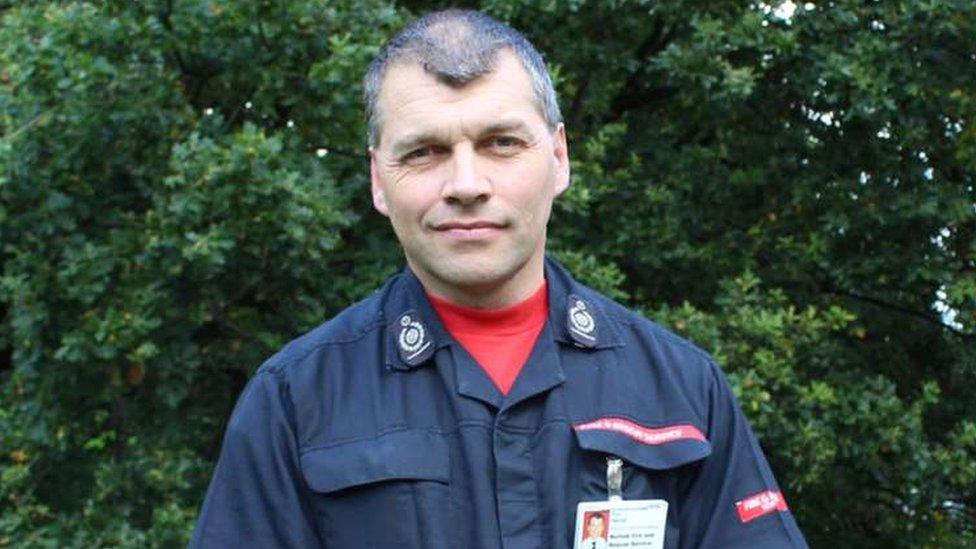
"You swap war stories, the Australians are very modest in what they're dealing with," said Norfolk's former chief fire officer Roy Harold
"There's always a nagging feeling as a blue light responder that when you walk away, you never know what happens next," said Roy Harold.
He served as chief fire officer in Norfolk, retired in 2016 and is now based in Cambridgeshire.
"After disasters people want to help but it can be quite a hostile environment and if you're unprepared for it then it can be difficult to integrate.
"Twenty-five years ago I hosted a Tasmanian firefighter with us in Peterborough and we kept in touch.
"Our jaws were hitting the floor when I saw what they were dealing with.
"I'm sure I'll have my hands on a hammer and some wire. It sounds low-tech but the whole economy in that area is based on livestock.
"The first priority will be helping farmers get their stock under control."
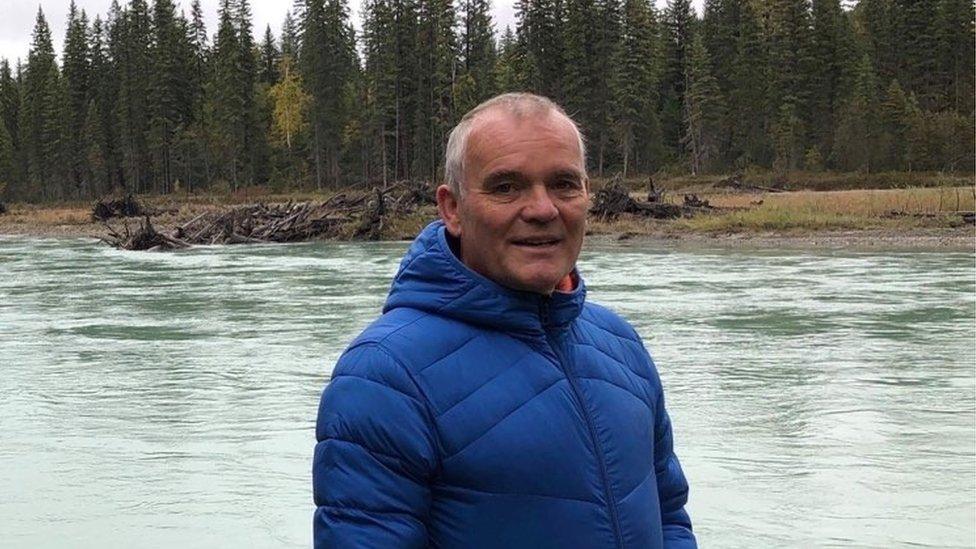
"You get to the stage when you're operating on adrenaline - we know how it feels," said retired firefighter Billy Carruthers
Retired firefighter Billy Carruthers, from Huddersfield, served for 30 years and knows how his Australian counterparts are feeling.
"A lot of the fires we attended in Yorkshire were on peat moors, so I learned what it's like to be out there for months on end just slogging away at it.
"It's going to be a massive clean-up operation, and we're lucky a lot of us are retired because we have more time to help.
"The fires we used to deal with were miniscule on the Australian scale, they obviously need help with recovery."
Mr Carruthers said he was excited about meeting his equivalents down under.
"It will be a huge buzz for us, that's the payback. We're all prepared to get stuck in.
"There will be no stopping us, we'll be there until the job is finished."
- Published1 February 2020
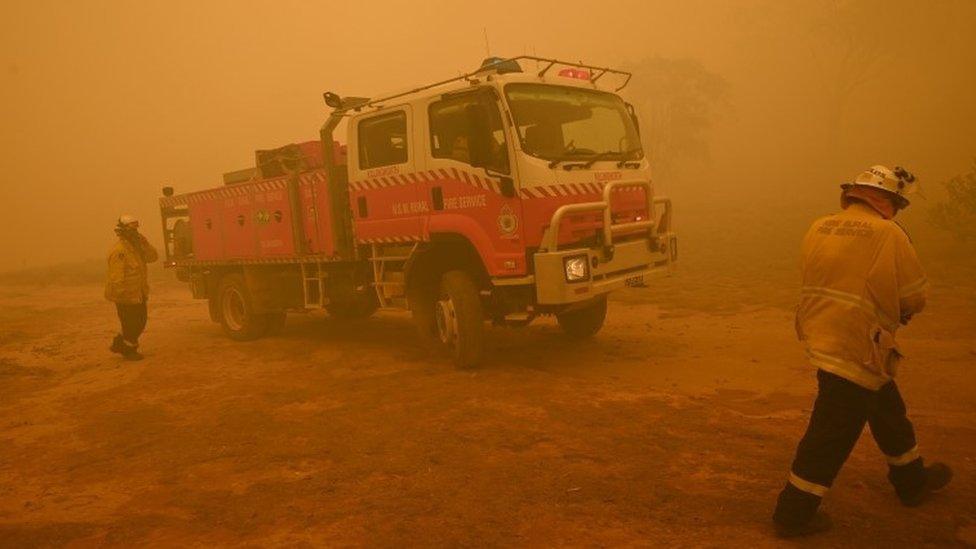
- Published31 January 2020
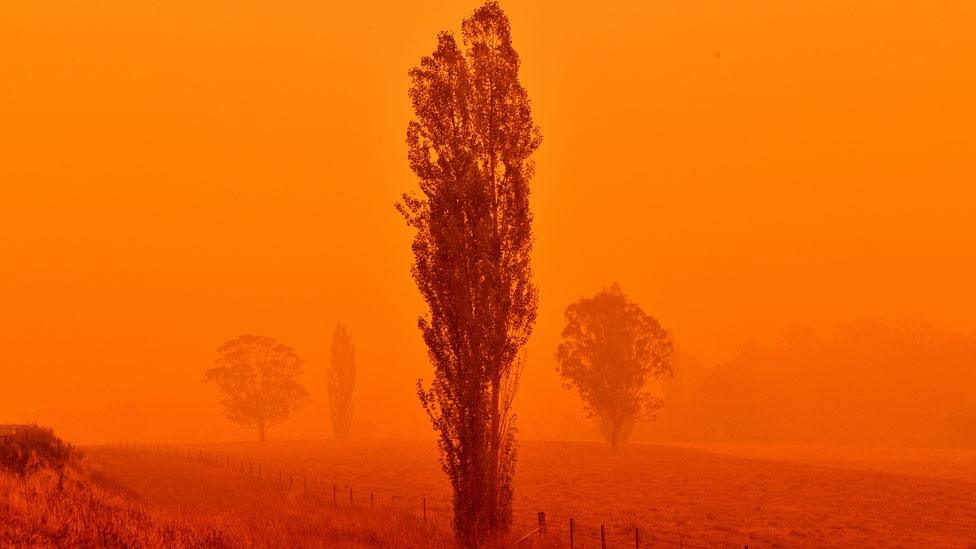
- Published29 January 2020
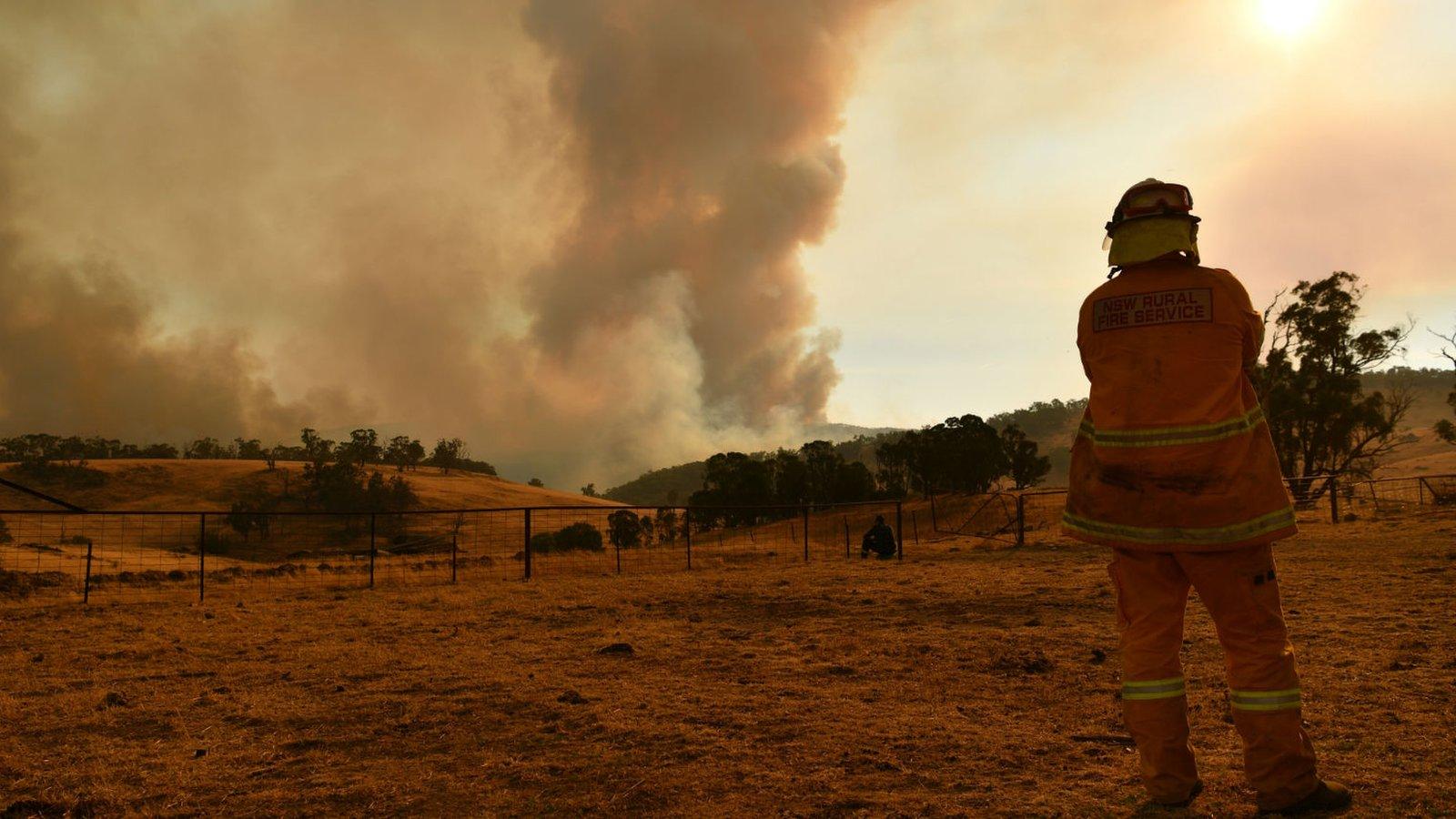
- Published29 January 2020
